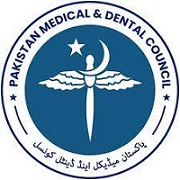ARTIFICIAL INTELLIGENCE ITS ROLE IN CLINICAL PRACTICE
Abstract
As Artificial intelligence (AI) continues to expand, ingress and impact how clinicians and physicians have worked for centuries. On paper the availability of a technology that is touted to think and act humanly and as well as rationally1 brings a fascinating opportunity to the clinicians that will be able to improve their clinical practice by incorporating AI as a diligent assistant or a subservient resource. It is unclear if future algorithms-based AI will help the clinicians or replace human clinicians entirely. Clinicians should have this doomsday scenario in their thoughts.
Since the inception of first AI program in 1951 by Christopher Stachary2 the world has witnessed powerful algorithms leading to dawn of improved innovative technological systems often identified as AI enabled information systems.3 These systems display AI capabilities of powerful computing and data processing, natural language processing and understanding, learning, problem solving and decision making.1 AI systems are considered to function in a transparent and unbiased manner to interact with humans and often perform complex activities based on computer vision, speech recognition and natural language processing4 allow to execute voice operated commands to carry out intricate procedures and complex diagnosis. Thus, these AI systems are capable of performing complex tasks like humans. Ideally such AI enabled systems will empower researchers to conduct rigorous research and empower clinicians to carryout relevant practices to alleviate patient suffering.
The rapid progression of AI, has found its application in healthcare system to improve patient care.5 Looking into the most useful application of AI, it comes out to be in clinical diagnostics. The most important is in clinical radiology where most of the diseases like carcinoma and its staging is dependent on computer generated images, mostly read by radiological experts, now AI systems are utilized in diagnosing carcinomas with more accuracy.6 AI tools have shown to improve accuracy and save time. 6 In COVID 19 pandemic, the recognition of digital images of x-ray, CT and MRI significantly helped in diagnosing patients. Similarly, AI has proved to be efficient in laboratory testing by speeding up the results of laboratory investigations with improve analysis, accuracy and less errors.7 AI at higher level may be utilized in diagnosing genomic data of micro- organisms and gene sequencing. As a note of caution, one should be aware of the retractions in the current academia where often AI generated data, data visualization or image analysis have been found to be incorrect leading to retractions.8
Currently, AI systems are used to triage patients in emergency reducing waiting time and improving patient influx, particularly in public sector hospitals where the patient load is immense. Patient can book their appointments in outdoor and access their laboratory results. This results in more involvement of patients in their self -care and responsibility to get medical treatment.9 Similarly, AI powered chatbots are used in patient education regarding diet and healthy life style,10 quitting smoking,11 awareness about different health issues or queries regarding treatments received and options regarding treatments. Chatbots clearly add knowledge and update patients about different health matters. Good examples are life style modifications in patients with diabetes mellitus, hypertension and other self-care instructions. At the same time, public perception in trusting AI for its benefits and limitations is a careful consideration in adopting the use of AI enabled health care systems. Patients like interacting with their physician most of the time or at least some of the time while being treated. Some patients view relying on AI for treatment as uncomfortable and may not trust to be treated by AI especially for serious and life-threatening conditions as well as AI human interactions against human dignity.12
Whereas on the face of it, AI appears more than a virtue in helping healthcare providers to manage patient care accurately and efficiently, never the less some very strong arguments to critically view the future with AI in clinical practice need to be addressed. The foremost fear is Humans VS AI debate according to which the Human clinicians, diagnostic technicians will lose many jobs which will be performed accurately and efficiently by AI Clinicians. Can this happen? Can the control over AI be lost?13 These are all pertinent questions which the researchers and clinicians should be aware of and should make a conscientious effort to ethically attend to any medical intervention that is to be administered.
AI is here to stay and will revolutionize clinical practices. It is already taking over certain tasks from clinicians and researchers like data collection, data processing and data analysis, with intent to provide a speedy and quick process with accurate outcomes. Clinician will also face extreme views from patients which will range from utopian perception to dystopian perception. The former class of patients will have a perception that AI is a one stop solution to all the problems and illnesses while the latter class of patients will display low trust and low acceptance about the AI capabilities. Cyber security laws in an AI environment need to be implemented effectively to protect patient data so the patient can receive medical treatment in most effective of ways without facing discrimination or isolation.14
In my opinion, clinicians may be forced to take up an additional role to ensure ethical use of AI with a hope that AI will bring benefits to the patients. However, in all fairness, ethical issues regarding safe guarding patient data, privacy and confidentiality violation need to be addressed immediately by the clinician in consultation with the patient. This for the time being is necessary each time a patient seeks clinicians help.





